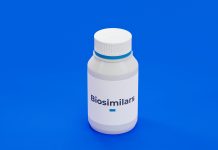Defence Therapeutics Inc. releases Accum® study revealing its anti-cancer properties
Defence Therapeutics Inc. have announced the publication of a peer-reviewed study on the anti-cancer properties of its unconjugated Accum®.
Accum®-mRNA lipid nanoparticles have double the antibody response of traditional mRNA vaccines
Defence Therapeutics has announced a groundbreaking achievement, demonstrating that its Accum®-mRNA lipid nanoparticles elicit twice the antibody response of mRNA-based vaccines.
The company's encapsulation strategy,...
Researchers discover new target to combat cancer drug resistance
In a groundbreaking development, scientists at the University of Queensland have pinpointed a novel drug target with immense promise in combating cancer drug resistance...
Cold chain challenges solved with collaboration
B Medical Systems has hosted a roundtable event at Medlab Asia – providing insights into the challenges of cold chain systems.
During the Medlab Asia...
How Defence’s Accum® technology is advancing cancer therapeutics
Industry-leading biotechnology pioneer Defence Therapeutics details how the company is advancing immune oncology through its revolutionary Accum® technology.
Whether using an antibody, cell-based vaccine or...
Investigating the best food supplements for mental health
Dr. Hemp Me details the best food supplements for mental health conditions and their exciting potential benefits.
In the pursuit of mental wellness, an often-overlooked...
Defence completes first milestone of Orano collaboration agreement
Defence Therapeutics Inc. has announced that it has successfully reached the first milestone established in the Orano collaboration agreement.
The collaboration agreement was entered with...
UK and BioNTech SE sign landmark deal for cancer vaccine trials
The UK Government has established a historic agreement with German-based BioNTech SE for cancer vaccine trials.
The groundbreaking deal will improve access to cancer vaccine...
NHS approves sight-saving ranibizumab drug for premature babies
The NHS has approved the use of ranibizumab – a revolutionary drug that can prevent blindness in premature babies.
Ranibizumab will now be offered as...
Defence Therapeutics details impressive Accum™ patent portfolio
Leading biotechnology company Defence Therapeutics explores its growing patent portfolio for the company’s flagship AccumTM-based platform.
Defence Therapeutics is harnessing the power of AccumTM to...
Defence’s Accum™ technology effectiveness shown in published patent application
Defence Therapeutics has announced the publication of its new international (PCT) patent application. This demonstrates the effectiveness of Defence’s Accum™-based technology to intracellularly deliver...
Defence Therapeutics has reached the final stages of AccuTOXTM for its phase I clinical...
Defence Therapeutics has announced that it has reached the final stages of its AccuTOXTM Chemistry, Manufacturing, and Controls (CMC).
A Canadian biopharmaceutical company specialised in...
Defence Therapeutics initiate testing of ARM vaccine against pancreatic cancer
Defence Therapeutics has mandated the Transbiotech Biotechnology Research and Transfer Center to begin testing its cellular anti-cancer ARM vaccine against pancreatic cancer.
Research from the...
Defence Therapeutics’ ARM vaccine cures 100% of solid tumours in rodent models
Defence Therapeutics has revealed that the company’s cutting-edge ARM vaccine cures 100% of tumours in rodent models.
The leading biopharmaceutical company revealed that performing a...
A boost for NervGen’s spinal cord injury trials
Following the success of its phase I clinical trial, NervGen will initiate a phase Ib/IIa trial as early as Q3 this year to demonstrate...
Defence Therapeutics completes AccuTOXTM preclinical efficacy studies
Defence Therapeutics has successfully completed all essential preclinical efficacy studies for the company’s AccuTOXTM programme.
AccuTOXTM is one of Defence’s most advanced research and development...
Defence Therapeutics granted US patent for vaccine enhancer technology
Discover how the issue of a patent will allow Defence Therapeutics' vaccine enhancer technology to be commercialised.
How the potential of biosimilar medications can be unlocked
Health Europa details everything you need to know about biosimilar medications, their benefits, safety, success stories, and how biosimilars can revolutionise healthcare.
The potential of...
Defence Therapeutics’ mRNA cancer vaccine testing begins
Canadian biopharmaceutical specialist Defence Therapeutics has announced that testing of its revolutionary AccumTM-linked mRNA cancer vaccine has started.
The performance of Defence’s AccumTM mRNA cancer...
Defence Therapeutics successfully develops ACCUMTM -mRNA cancer vaccine
Canadian biopharmaceutical pioneer Defence Therapeutics has revealed it has successfully conjugated mRNA molecules to AccumTM – a significant breakthrough that looks to enhance the...











































